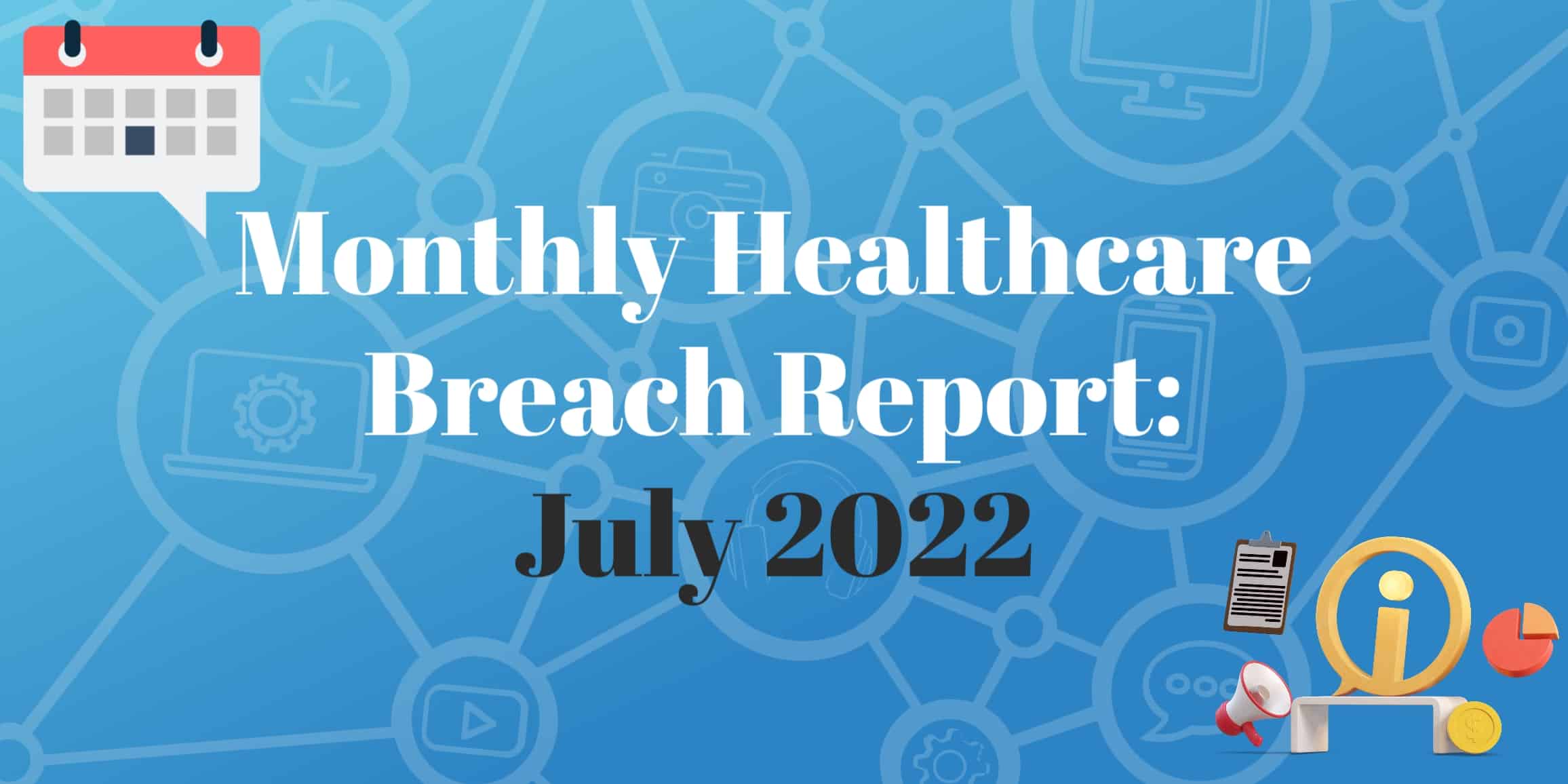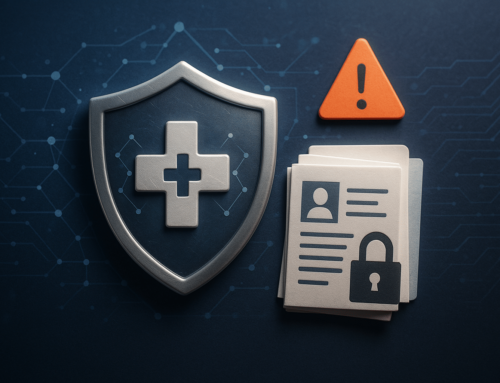Each month, we review healthcare breaches to determine the leading cause and how the incidents could have been prevented. We do so by examining the Office for Civil Rights (OCR) online breach portal. The OCR publicly posts healthcare breaches that affected 500 or more patients to ensure that all affected patients know their information could have been potentially compromised.
July proved to be a month when business associates reported breaches affecting more than double the number of patients’ information as covered entities.
Business associates reported 3,598,456 records breached in July, while covered entities tallied 1,710,049 breached files. Together, data breaches affected 5,308,505 records containing protected health information (PHI) during July.
In July 2022, there were 57 large-scale breaches reported, 31 of which affected healthcare providers. These 31 incidents compromised the PHI of 1,275,263 individuals, representing 24% of patients affected by the July incidents.
Business associates reported 16 additional incidents, accounting for nearly one-third of all records breached. Business associate incidents affected 3,598,456 patients, representing 67.8% of patients affected.
Ten health plans also reported incidents affecting 434,813 patients and representing 8.2% of affected patients.
In July, 47 breaches resulted from hacking incidents. There were seven breaches caused by unauthorized access or disclosure of PHI, two incidents involving theft, and one as the result of loss of PHI.
July 2022 Healthcare Breaches and Hacking
Cybercriminals are still busy as hacking continued its streak at the top of the list of causes of healthcare breaches in July 2022. The 47 hacking incidents reported in July affected the PHI of 5,177,660 patients. These 47 incidents represented 97.5% of all reported records breached during the month.
Entities affected by hacking:
- 26 healthcare providers, 1,268,083 patients, 24.5% of patients affected by hacking
- 14 business associates, 3,560,048 patients, 68.8% of patients affected by hacking
- 7 health plans, 329,529 patients, 6.7% of patients affected by hacking
Types of hacking incidents:
- 30 network server hacks, 4,967,305 patients, 95.9% of patients affected by hacking
- 118 email hacks, 91,894 patients, 1.8% of patients affected by hacking
- 5 electronic medical records systems hacks, 116,763 patients, 2.3% of patients affected by hacking
- 1 other causes hack, 1,698 patients, less than 0.02% of patients affected by hacking
How to Prevent Hacking Incidents
As hacking incidents have become the leading cause behind healthcare breaches for several years, minimizing your risk of being targeted is crucial.
Security Risk Assessments and Remediation
Security risk assessments (SRAs) are vital for security and compliance. An SRA aims to identify weaknesses and vulnerabilities in your security practices to prepare yourself against potential threats. Once SRAs have been conducted, it is essential to create remediation plans to address any identified deficiencies.
Employee Cybersecurity Training
A significant portion of hacking incidents results from phishing emails. This is why employee cybersecurity training is essential to your organization’s overall security posture. Employees should be trained on recognizing phishing attempts and what to do if they suspect an incident has occurred.
July 2022 Healthcare Breaches and Unauthorized Access or Disclosure
Incidents of unauthorized access or disclosures of PHI can occur in two ways – an authorized employee accesses PHI inappropriately, or an unauthorized party gains access to PHI. In July 2022, six incidents of unauthorized access or disclosure of PHI were reported. These incidents affected 59,224 patients, representing 1.0% of the breached records reported in July.
Entities affected by unauthorized access or disclosure:
- 2 business associates, 38,408 patients, 71.4% of patients affected by unauthorized access or disclosure
- 4 healthcare providers, 5,952 patients, 11.1% of patients affected by unauthorized access or disclosure
- 1 health plan, 9,424 patients, 17.5% of patients affected by unauthorized access or disclosure
Types of unauthorized access or disclosure:
- 2 paper/films incidents, 38,408 patients, 71.4% of patients affected by unauthorized access or disclosure
- 1 other causes incidents, 9,424 patients, 17.5% of patients affected by unauthorized access or disclosure
- 1 email incident, 1,178 patients, 2.2% of patients affected by unauthorized access or disclosure
- 3 incidents related to electronic medical records, desktop computers, or a combination, 4,794 patients, 8.9% of patients affected by unauthorized access or disclosure
How to Prevent Unauthorized Access or Disclosure
As we mentioned, there are two ways in which unauthorized access or disclosures occur – inappropriate employee access or unauthorized access by another entity.
Policies and Procedures and Employee Training
HIPAA policies and procedures are essential to HIPAA compliance as they guide employees on what is appropriate. HIPAA requires employee use and disclosure of PHI to be limited to the minimum necessary to perform their job functions. Your policies and procedures should dictate this, and employees should be trained on the policies and procedures to be aware of their obligations.
User Authentication, Access Controls, and Audit Controls
To ensure adherence to the minimum necessary standard, you must implement user authentication, access controls, and audit controls. User authentication provides unique login credentials for each employee, while access controls enable administrators to designate different PHI access levels using those unique login credentials. Also, based on the implementation of unique login credentials, audit controls track access to data to ensure that PHI is accessed appropriately by each employee.
July 2022 Healthcare Breaches and Other Causes
In July 2022, other types of breaches were reported to OCR that affected a total of 77,061 individuals, representing 1.5% of the breached records reported in July.
- 2 health plans reported thefts of paper/films or other electronic devices,75,860 patients, 98.4% of the total patients affected by other causes
- 1 healthcare provider reported the loss of a laptop, 1,201 patients, 1.6% of the total patients affected by other causes











